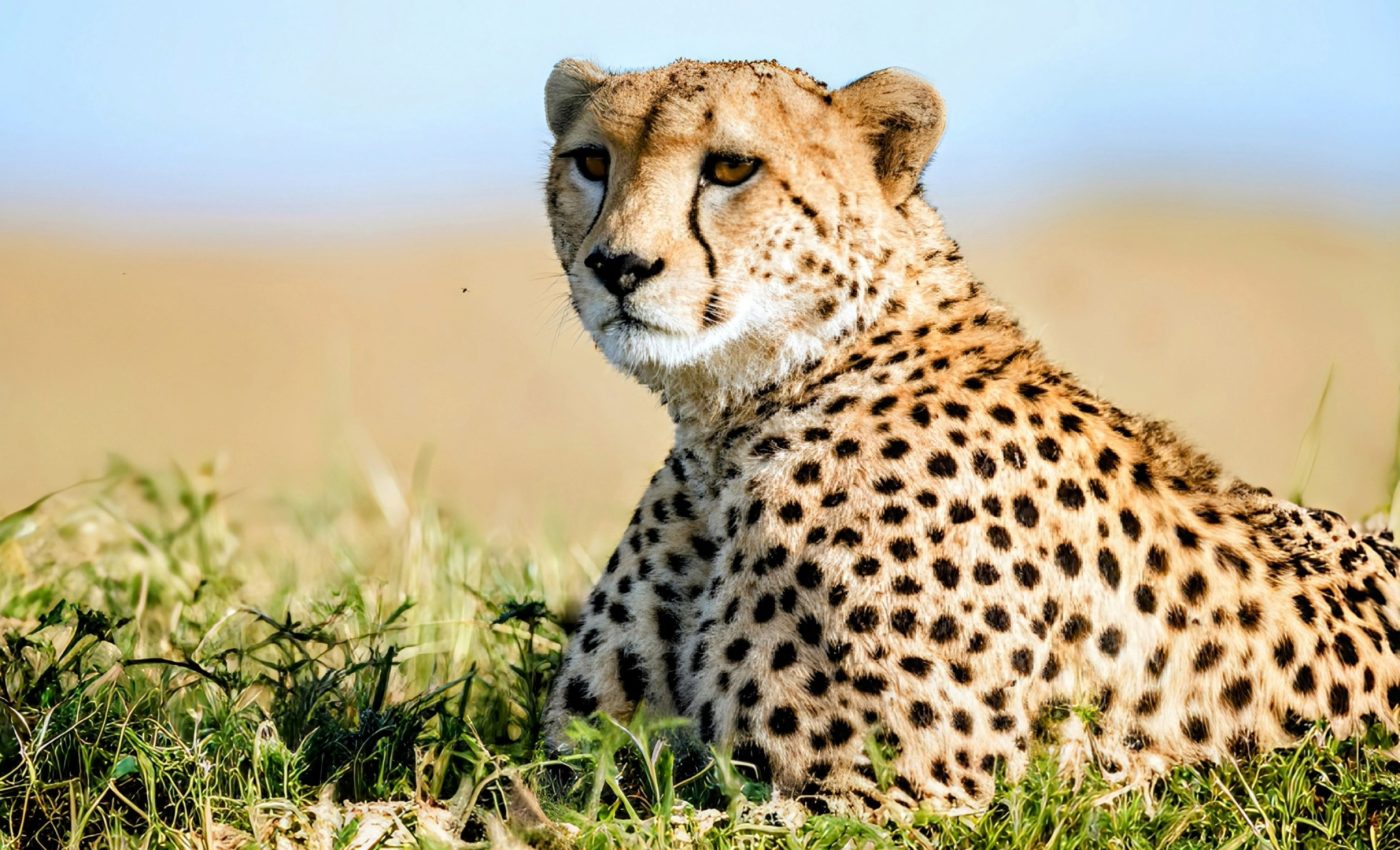
International Cheetah Day 2024: Racing against extinction
International Cheetah Day, celebrated each year on December 4, is dedicated to raising awareness about the challenges faced by this iconic big cat.
With fewer than 7,000 individuals remaining in the wild, this day highlights the urgent need for conservation efforts to protect cheetahs.
Fascinating facts about cheetahs
Cheetahs are extraordinary animals. They are the fastest land mammals – capable of reaching speeds of up to 70 miles per hour in short bursts during a chase.
What’s even more impressive is their acceleration, going from 0 to 60 miles per hour in just a few seconds.
Their slim, aerodynamic bodies, long legs, and specialized spine allow them to achieve this remarkable speed, while their semi-retractable claws provide extra grip during sprints.
Cheetah vision
Beyond their speed, cheetahs have exceptional vision, enabling them to spot prey from distances of up to three miles.
The black “tear marks” running from their eyes to their mouths reduce glare from the sun, aiding in precision hunting during the day.
Interestingly, cheetahs rely more on sight than scent when tracking prey, setting them apart from other big cats.
Social lives
Socially, male cheetahs often form coalitions, usually with their brothers, which help them defend territories and hunt cooperatively.
Females, on the other hand, are solitary and raise their cubs alone, teaching them crucial survival skills over the course of about 18 months.
Cheetahs also have unique vocalizations, including chirps and purrs. To communicate with their cubs, mothers use a high-pitched meow-like call. Unlike other big cats, they do not roar.
Threats faced by cheetahs
Cheetahs face a range of threats that have led to their classification as “Vulnerable” on the IUCN Red List – with some populations critically endangered.
Habitat loss
One of the primary challenges is habitat loss and fragmentation, caused by expanding agriculture, urbanization, and infrastructure development.
As their natural habitats are converted into farmland or settlements, cheetahs lose vital hunting grounds and are often confined to smaller, isolated populations.
This fragmentation not only limits their movement but also reduces genetic diversity, making them more susceptible to diseases and environmental changes.
Human-wildlife conflict
Human-wildlife conflict is another significant threat. Cheetahs are frequently killed by farmers who see them as a danger to livestock, especially in areas where traditional grazing lands overlap with cheetah territories.
Overgrazing by livestock further compounds the issue by depleting the natural prey base for cheetahs. These prey populations are also declining due to poaching and habitat degradation, leaving cheetahs with fewer options for survival.
Illegal wildlife trade
Illegal wildlife trade poses a dire risk to cheetahs, particularly to cubs, which are often captured to meet the demand for exotic pets. This practice not only disrupts family groups but also leads to high mortality rates among trafficked cubs.
Furthermore, roadkills and other accidental human impacts, such as collisions with vehicles in areas where roads intersect habitats, take a toll on their numbers.
Climate change
Adding to these challenges is climate change, which alters ecosystems and disrupts prey availability and water sources. In some regions, invasive plant species further degrade their habitats, reducing the quality of the ecosystems cheetahs depend on.
Taken together, these threats create a complex web of challenges that endanger the survival of this iconic species. Conservation efforts aim to address these issues, but the cheetah’s future remains uncertain without sustained and coordinated global action.
International Cheetah Day
International Cheetah Day was initiated by the Cheetah Conservation Fund (CCF). It is tied to the birth date of an orphaned cheetah cub named Khayam, rescued by CCF’s founder, Dr. Laurie Marker.
The day emphasizes education, community involvement, and spreading awareness to ensure a future for cheetahs in the wild. People worldwide are encouraged to participate by learning about cheetahs and supporting conservation initiatives.
For over six decades, the World Wildlife Fund (WWF) has been working to protect nature in more than 100 countries. To support the conservation efforts of WWF, you can symbolically adopt a cheetah.
—–
Like what you read? Subscribe to our newsletter for engaging articles, exclusive content, and the latest updates.
Check us out on EarthSnap, a free app brought to you by Eric Ralls and Earth.com.
—–













